Novel Name : The Surgeon’s Studio
The Surgeon’s Studio Chapter 439 - A Sociable Elderly Patient
Chapter 439: A Sociable Elderly Patient
Pushing a middle-aged, elderly male patient on the stretcher trolley, he ran straight to the emergency room like a stray dog that was shedding.
Zheng Ren glanced at the System’s panel on the upper-right side of his vision.
What a strange diagnosis.
Brain injury and ketoacidosis!
In Zheng Ren’s eyes, these two diagnoses were unimportant.
There was not even a subarachnoid hemorrhage. Why would Zheng Ren care?
Brain trauma was similar to being concussed. However, there was no actual treatment for concussion.
The patient did not have any organic lesions but because of the head impact, he had temporary dizziness, headache, nausea, vomiting, and other symptoms, all of which were collectively known as brain trauma.
Because there were no organic lesions, the reasons for his brain trauma were probably due to fighting and or a car accident.
This was not important compared to fatal ketoacidosis.
Under pathophysiology, ketosomes were the liver fat decomposition into fatty acids of the intermediate metabolites.
Under normal circumstances, the body produces a small amount of ketosomes, along with blood transport to the heart, kidney, and skeletal muscle and other tissues. Used as a source of energy, the blood concentration of ketosomes was very low, generally not more than 1.0 mg/dl. Therefore, you could not use a urinal test to detect ketosomes.
For severe diabetics, ketosomes could be detected in the urine. No matter how serious it was, when the ketosomes accumulated too much in the blood, it could cause the blood to turn sour and lead to acidosis, known as ketoacidosis.
Zheng Ren watched the nurse as she busied herself. She put the patient on electrocardiogram monitoring and left an intravenous channel, waiting for the doctor’s next instructions.
He moved closer to the patient and sniffed. There was the smell of rotten apples. Zheng Ren knew it was coming from the ketoacidosis.
“Take a blood sugar test,” Zheng Ren said. “Call the endocrinology department’s Chief Resident for an immediate consultation.”
The nurse was a little surprised. The patient’s head was bandaged. It was obvious that it was a head injury. Why would Chief Zheng ask for an endocrine consultation?
However, there was a strict hierarchy between the higher and lower levels of the hospital, so they did not express their opinions during the rescue. Instead, they chose to obey.
“Where’s the patient’s family!” Zheng Ren shouted.
An eighteen or nineteen-year-old teenager was following in the ambulance. He rushed to Zheng Ren’s side and asked, “Doctor, is the injury severe?”
At the same time, the sound of hurried footsteps could be heard coming from the corridor.
Under normal circumstances, the ambulance would allow a family member to come up and help take care of the patient. Of course, the rules were different in different places. This was the case in Haicheng.
Other family members could take a taxi or follow inside the ambulance to the hospital.
Zheng Ren was a little unhappy when he saw that it was a young man.
The adults in this family were really caring, huh. He looked at the age of the patient, who was about 60 years old. This child might be his grandson or nephew.
Where were the adults? How could they let just a teenager follow him?
“Where are your parents?” Zheng Ren asked.
The teenager was stunned for a moment, then he said, “They’re at work.”
“Are there any adults coming?” Zheng Ren asked.
“Aunt Zhao and Uncle Li are coming over.”
This was more difficult to deal with than he would have liked. Zheng Ren was a little troubled.
The patient’s fatal diagnosis was ketoacidosis, so he could die at any time. However, the more immediate family members were not here…
“You’ll have to do for now. Who are you to the patient?”
“I’m his neighbor.”
Zheng Ren was dumbfounded. What kind of goddamn mess was this?
“Chief Zheng, the patient’s blood sugar is 54.2 MMOL/L,” the nurse said with a look of admiration.
Such a high blood sugar limit was rarely seen even in the emergency department. Perhaps the endocrinology department would have encountered a similar case before?
This also proved the patient’s critical condition.
Zheng Ren did not know how to deal with ketoacidosis. It was not completely impossible, but it was not a part of his expertise.
“10 U Insulin subcutaneous injection, 500 saline. Blood gas analysis, ions,” Zheng Ren immediately said.
Small doses of insulin to correct high blood sugar, plus fluid replacement, to correct the loss of body fluid and ion disorders, was the focus of the initial treatment.
Zheng Ren could only do so much.
The endocrinology department was not far from the emergency building. In a few more minutes, the blood gas and arterial blood might not last, so they had to push the patient to the endocrinology department for specialized treatment as soon as possible.
At that moment, a man and a woman, both middle-aged, ran in out of breath.
“Doctor, how’s Uncle Wang?”
Zheng Ren glanced at them and said, “His condition is critical. Has the patient’s immediate family been notified?”
“He doesn’t have any immediate family. He’s alone. We’re all his neighbors,” the man said.
What…
Zheng Ren was in a dilemma.
However, it seemed that this man had quite a good relationship with people. The relationship between neighbors nowadays was usually very cold. If no one had noticed him, he would die at home and only been discovered when his body was rotting.
“The patient’s blood sugar is particularly high. The diagnosis is ketoacidosis. It’s very dangerous. He’ll have to go to the endocrinology department for in-patient treatment later.” Zheng Ren looked at the three people who brought the patient in, trying to figure out what they thought about it.
“It’s hard to say if he can be saved,” Zheng Ren said. “Who will pay the hospitalization fee later?”
“Doctor, do your best. Don’t worry about the hospitalization fee. I’ll settle it,” the man said.
“Brother Li, your family is not well-off. The child is still young. Let me do it,” the woman said.
Zheng Ren was a little surprised.
In the hospital and especially in the emergency department, he was used to seeing people who were indifferent. It was rare to see people fighting over the hospitalization fee for an old man like this who likely widowed and lonely.
The young man who came first said firmly, “Both of you, please don’t argue. I’ll pay first. When I was in the car, I called my father and he’s rushing here. He asked me to pay the fee first. I still have cash on hand so it’s fine.”
While they were arguing, the endocrinology department’s Deputy Chief rushed over.
Feng Qing was in his forties. He was not tall and looked simple and honest. He stuttered a little when he spoke.
Zheng Ren knew Feng Qing. Because the General Surgery Department involved elderly patients in surgery, more than half the preoperative evaluations required endocrinology consultations.
The slow consultation was handled by the Deputy Chief, Feng Qing. The emergency consultations were handled by the Chief Resident.
He did not know why he came here today.
“Director Feng, the patient’s blood sugar is above 50. My suspicions are ketoacidosis.” Zheng Ren ignored the argument between the few neighbors and turned to introduce the patient to Chief Feng. “A small dose of insulin has been injected subcutaneously. Blood gas and ions have been checked.”
“Okay.” Feng Qing did not say much. Because he had a stuttering problem, he basically used one or two words to express himself.
“Should he be admitted into the hospital?” Zheng Ren asked for Feng Qing’s opinion respectfully.
“Okay,” Feng Qing said as he began the physical examination.
The patient had a problem with his light reflexes. The condition had already reached a certain degree.
“The head CT. Do you want to do it now or back in your department?” Zheng Ren asked.
“I… I don’t think it’s an external…trauma problem. It should be caused by ketosis… He should be admitted to the hospital,” Feng Qing said as best as he could.
Pushing a middle-aged, elderly male patient on the stretcher trolley, he ran straight to the emergency room like a stray dog that was shedding.
Zheng Ren glanced at the System’s panel on the upper-right side of his vision.
What a strange diagnosis.
Brain injury and ketoacidosis!
In Zheng Ren’s eyes, these two diagnoses were unimportant.
There was not even a subarachnoid hemorrhage. Why would Zheng Ren care?
Brain trauma was similar to being concussed. However, there was no actual treatment for concussion.
The patient did not have any organic lesions but because of the head impact, he had temporary dizziness, headache, nausea, vomiting, and other symptoms, all of which were collectively known as brain trauma.
Because there were no organic lesions, the reasons for his brain trauma were probably due to fighting and or a car accident.
This was not important compared to fatal ketoacidosis.
Under pathophysiology, ketosomes were the liver fat decomposition into fatty acids of the intermediate metabolites.
Under normal circumstances, the body produces a small amount of ketosomes, along with blood transport to the heart, kidney, and skeletal muscle and other tissues. Used as a source of energy, the blood concentration of ketosomes was very low, generally not more than 1.0 mg/dl. Therefore, you could not use a urinal test to detect ketosomes.
For severe diabetics, ketosomes could be detected in the urine. No matter how serious it was, when the ketosomes accumulated too much in the blood, it could cause the blood to turn sour and lead to acidosis, known as ketoacidosis.
Zheng Ren watched the nurse as she busied herself. She put the patient on electrocardiogram monitoring and left an intravenous channel, waiting for the doctor’s next instructions.
He moved closer to the patient and sniffed. There was the smell of rotten apples. Zheng Ren knew it was coming from the ketoacidosis.
“Take a blood sugar test,” Zheng Ren said. “Call the endocrinology department’s Chief Resident for an immediate consultation.”
The nurse was a little surprised. The patient’s head was bandaged. It was obvious that it was a head injury. Why would Chief Zheng ask for an endocrine consultation?
However, there was a strict hierarchy between the higher and lower levels of the hospital, so they did not express their opinions during the rescue. Instead, they chose to obey.
“Where’s the patient’s family!” Zheng Ren shouted.
An eighteen or nineteen-year-old teenager was following in the ambulance. He rushed to Zheng Ren’s side and asked, “Doctor, is the injury severe?”
At the same time, the sound of hurried footsteps could be heard coming from the corridor.
Under normal circumstances, the ambulance would allow a family member to come up and help take care of the patient. Of course, the rules were different in different places. This was the case in Haicheng.
Other family members could take a taxi or follow inside the ambulance to the hospital.
Zheng Ren was a little unhappy when he saw that it was a young man.
The adults in this family were really caring, huh. He looked at the age of the patient, who was about 60 years old. This child might be his grandson or nephew.
Where were the adults? How could they let just a teenager follow him?
“Where are your parents?” Zheng Ren asked.
The teenager was stunned for a moment, then he said, “They’re at work.”
“Are there any adults coming?” Zheng Ren asked.
“Aunt Zhao and Uncle Li are coming over.”
This was more difficult to deal with than he would have liked. Zheng Ren was a little troubled.
The patient’s fatal diagnosis was ketoacidosis, so he could die at any time. However, the more immediate family members were not here…
“You’ll have to do for now. Who are you to the patient?”
“I’m his neighbor.”
Zheng Ren was dumbfounded. What kind of goddamn mess was this?
“Chief Zheng, the patient’s blood sugar is 54.2 MMOL/L,” the nurse said with a look of admiration.
Such a high blood sugar limit was rarely seen even in the emergency department. Perhaps the endocrinology department would have encountered a similar case before?
This also proved the patient’s critical condition.
Zheng Ren did not know how to deal with ketoacidosis. It was not completely impossible, but it was not a part of his expertise.
“10 U Insulin subcutaneous injection, 500 saline. Blood gas analysis, ions,” Zheng Ren immediately said.
Small doses of insulin to correct high blood sugar, plus fluid replacement, to correct the loss of body fluid and ion disorders, was the focus of the initial treatment.
Zheng Ren could only do so much.
The endocrinology department was not far from the emergency building. In a few more minutes, the blood gas and arterial blood might not last, so they had to push the patient to the endocrinology department for specialized treatment as soon as possible.
At that moment, a man and a woman, both middle-aged, ran in out of breath.
“Doctor, how’s Uncle Wang?”
Zheng Ren glanced at them and said, “His condition is critical. Has the patient’s immediate family been notified?”
“He doesn’t have any immediate family. He’s alone. We’re all his neighbors,” the man said.
What…
Zheng Ren was in a dilemma.
However, it seemed that this man had quite a good relationship with people. The relationship between neighbors nowadays was usually very cold. If no one had noticed him, he would die at home and only been discovered when his body was rotting.
“The patient’s blood sugar is particularly high. The diagnosis is ketoacidosis. It’s very dangerous. He’ll have to go to the endocrinology department for in-patient treatment later.” Zheng Ren looked at the three people who brought the patient in, trying to figure out what they thought about it.
“It’s hard to say if he can be saved,” Zheng Ren said. “Who will pay the hospitalization fee later?”
“Doctor, do your best. Don’t worry about the hospitalization fee. I’ll settle it,” the man said.
“Brother Li, your family is not well-off. The child is still young. Let me do it,” the woman said.
Zheng Ren was a little surprised.
In the hospital and especially in the emergency department, he was used to seeing people who were indifferent. It was rare to see people fighting over the hospitalization fee for an old man like this who likely widowed and lonely.
The young man who came first said firmly, “Both of you, please don’t argue. I’ll pay first. When I was in the car, I called my father and he’s rushing here. He asked me to pay the fee first. I still have cash on hand so it’s fine.”
While they were arguing, the endocrinology department’s Deputy Chief rushed over.
Feng Qing was in his forties. He was not tall and looked simple and honest. He stuttered a little when he spoke.
Zheng Ren knew Feng Qing. Because the General Surgery Department involved elderly patients in surgery, more than half the preoperative evaluations required endocrinology consultations.
The slow consultation was handled by the Deputy Chief, Feng Qing. The emergency consultations were handled by the Chief Resident.
He did not know why he came here today.
“Director Feng, the patient’s blood sugar is above 50. My suspicions are ketoacidosis.” Zheng Ren ignored the argument between the few neighbors and turned to introduce the patient to Chief Feng. “A small dose of insulin has been injected subcutaneously. Blood gas and ions have been checked.”
“Okay.” Feng Qing did not say much. Because he had a stuttering problem, he basically used one or two words to express himself.
“Should he be admitted into the hospital?” Zheng Ren asked for Feng Qing’s opinion respectfully.
“Okay,” Feng Qing said as he began the physical examination.
The patient had a problem with his light reflexes. The condition had already reached a certain degree.
“The head CT. Do you want to do it now or back in your department?” Zheng Ren asked.
“I… I don’t think it’s an external…trauma problem. It should be caused by ketosis… He should be admitted to the hospital,” Feng Qing said as best as he could.
Rankings
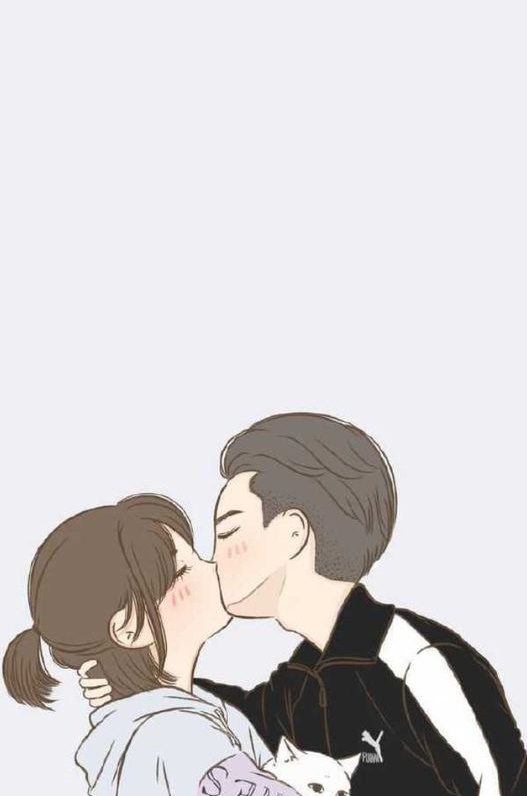
To Cure the Playboy
Hailey Allen
Read To Cure the Playboy by Hailey Allen. Genre: Chinese novels. Read the full novel online for free hereRecovering from
Love Has its Will by Selena Lewis
Selena Lewis
Read Love Has its Will by Selena Lewis by Selena Lewis. Genre: Chinese novels. Read the full novel online for free hereT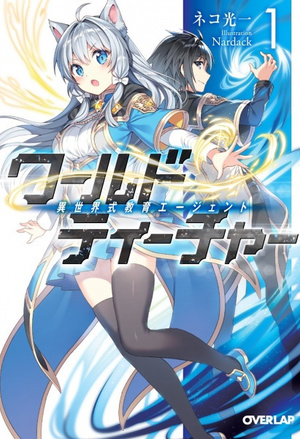
World Teacher – Other World Style Education & Agent
Neko Kouichi
A man who was once called the world strongest agent ended up becoming a teacher after his retirement to train the new ge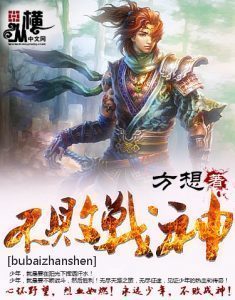
Undefeated God of War
方想
Youth, is meant to be used to shed sweat under the sun!Youth, is to continuously engage in battles, and secure the win!
My Entire Class Was Summoned to Another World except for Me
サザンテラス
A god of a different world had abruptly appeared in my classroom and semi-forcibly summoned the entire class to his worl
I Stayed At Home For A Century, When I Emerged I Was Invincible
Halfway Breeze
Chu Xuan transmigrated to a fantasy world and became the young master of a powerful family. He was rebuked for misbehavi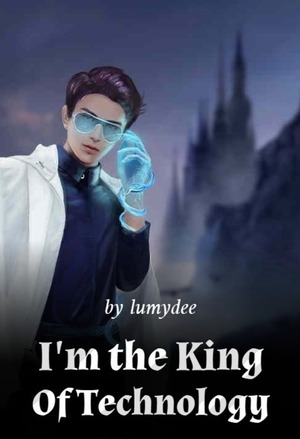
I'm the King Of Technology
Lumydee
Chu Yi dies in a car crash and becomes Landon Barn, the illegitimate son of king Barn, ruler of Arcadina. Because his mo
Kiss Me Goodnight, Mrs. CEO!
黛蜜儿
In the middle of the night, looking at the woman in his embrace, he smiled devilishly, “With your discontentment, do y
A Man Like None Other
Unknown
Read A Man Like None Other by . Genre: Chinese novels. Read the full novel online for free here.Jared Chance seethes wit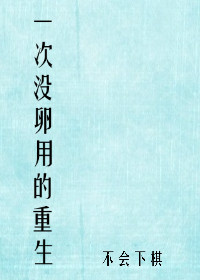
One Useless Rebirth
不会下棋
He Bai won the lottery, became rich, and reached the pinnacle of life. Then, he inadvertently took a picture of the Film